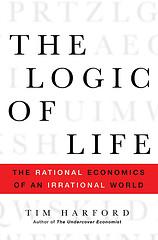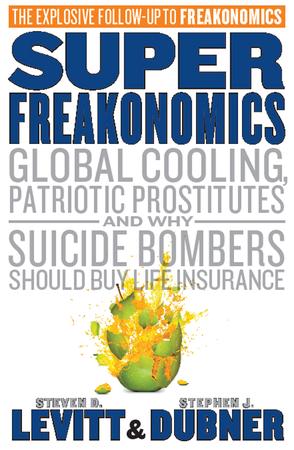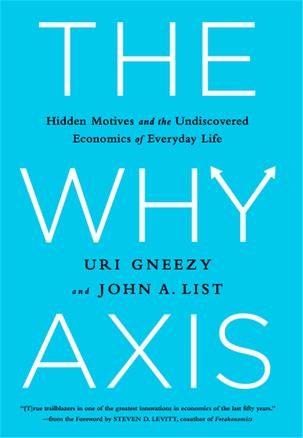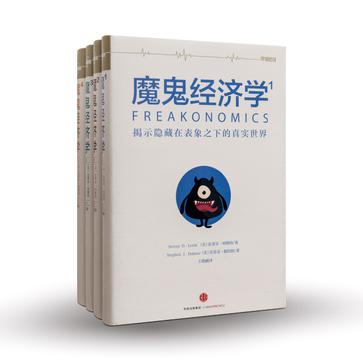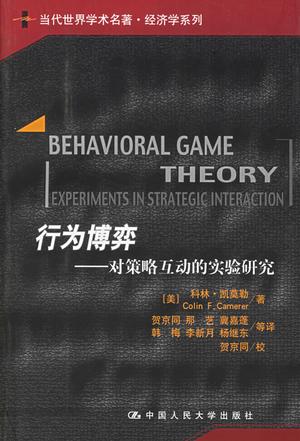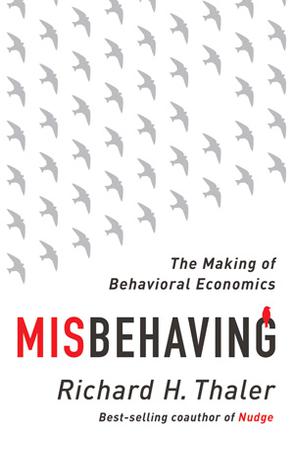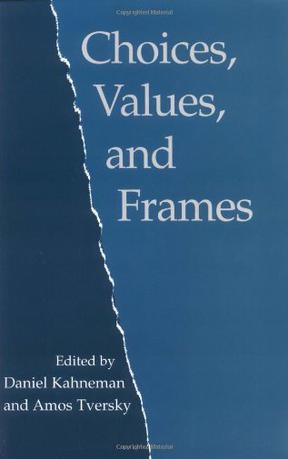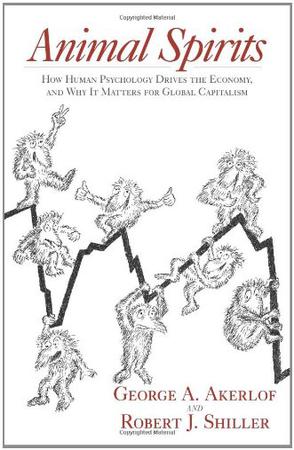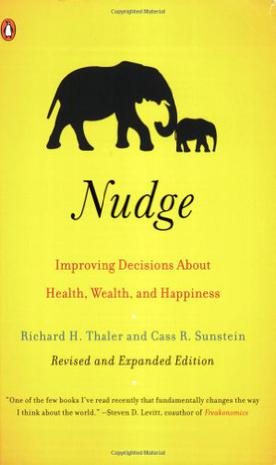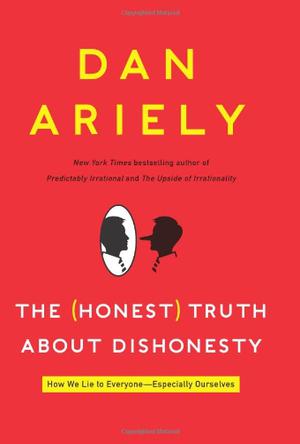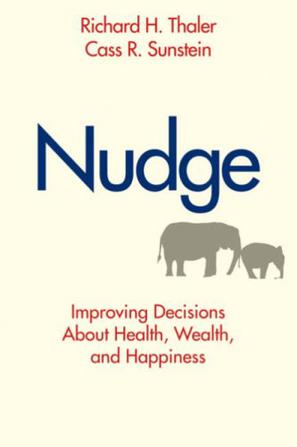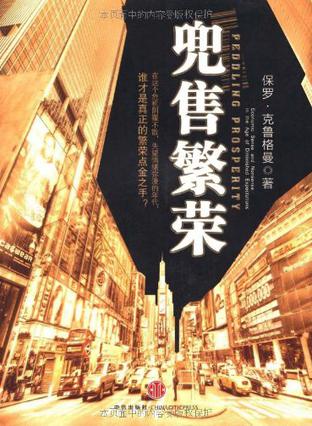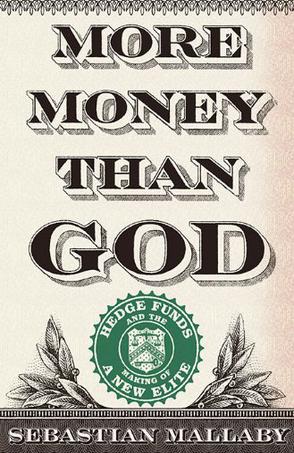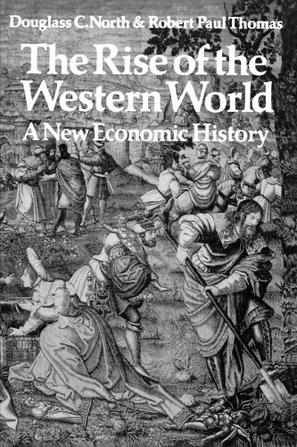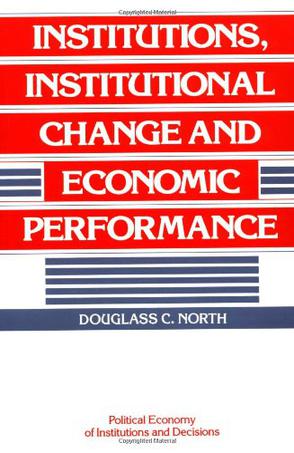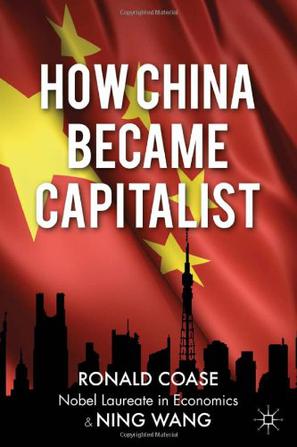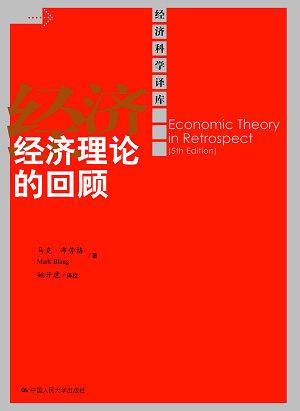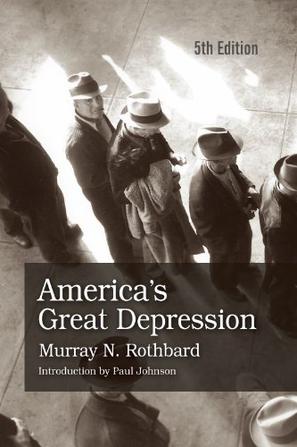欢迎来到相识电子书!
标签:economics
-
The Logic of Life
http://www.timharford.com/logicoflife/ “Life often seems to defy logic. When a prostitute agrees to unprotected sex, or a teenage criminal embarks on a burglary, or a smoker lights another cigarette, we seem to be a million miles from what we would call rational behaviour. None of this makes sense – or does it? Tim Harford thinks it does. And by weaving stories from locations as diverse as a Las Vegas casino and a Soho speed-date together with insights from an ingenious new breed of economist, he aims to persuade you that we are all, in fact, surprisingly logical. Reading this book, you’ll discover that the unlikeliest of people – racists, drug addicts, revolutionaries and rats – comply with economic logic, always taking account of future costs and benefits, even if they don’t quite realise it. It even explains why your boss is overpaid…” -
Super Freakonomics
The New York Times best-selling Freakonomics was a worldwide sensation, selling over four million copies in thirty-five languages and changing the way we look at the world. Now, Steven D. Levitt and Stephen J. Dubner return with SuperFreakonomics, and fans and newcomers alike will find that the freakquel is even bolder, funnier, and more surprising than the first. Four years in the making, SuperFreakonomics asks not only the tough questions, but the unexpected ones: What's more dangerous, driving drunk or walking drunk? Why is chemotherapy prescribed so often if it's so ineffective? Can a sex change boost your salary? SuperFreakonomics challenges the way we think all over again, exploring the hidden side of everything with such questions as: How is a street prostitute like a department-store Santa? Why are doctors so bad at washing their hands? How much good do car seats do? What's the best way to catch a terrorist? Did TV cause a rise in crime? What do hurricanes, heart attacks, and highway deaths have in common? Are people hard-wired for altruism or selfishness? Can eating kangaroo save the planet? Which adds more value: a pimp or a Realtor? Levitt and Dubner mix smart thinking and great storytelling like no one else, whether investigating a solution to global warming or explaining why the price of oral sex has fallen so drastically. By examining how people respond to incentives, they show the world for what it really is – good, bad, ugly, and, in the final analysis, super freaky. Freakonomics has been imitated many times over – but only now, with SuperFreakonomics, has it met its match. -
The Why Axis
Based on groundbreaking original research, The Why Axis is a colorful examination of why people do what they do—observed through the lens of incentives that can spur people to achieve. Uri Gneezy and John List are like the anthropologists who spend months in the field studying the people in their native habitats. But in their case they embed themselves in our messy world to try and solve big, difficult problems, such as the gap between rich and poor students and the violence plaguing inner city schools; the real reasons people discriminate; whether women are really less competitive than men; and how to correctly price products and services. Their field experiments in the factories, communities, and shops where real people live, work, and play show how economic incentives can change outcomes. Their results will change the way we both think about and take action on big and little problems, and force us to rely no longer on assumptions, but upon the evidence of what really works. -
行为博弈
《行为博弈》首次所做的有意义的尝试弥补了这种缺陷。科林·凯莫勒是本领域的领军人物之一,他利用心理学原则以及数以百计的实验研究来建立有关互惠行为、有限策略选择以及学习过程的数理化理论,这有助于推断真实世界中的个人或团体在各种策略条件下会如何行动。作者吸纳了大量研究策略行为的前沿成果,使得行为经济学的实验科学向前迈进了重要一步。作者行文流畅,语言平实易懂。 博弈论,作为对策略选择的标准化研究,起始于20世纪40年代,其方法是考察无情感的“天才”在博弈中应如何行动。但是这种方法却忽视了带有情感和有限预见力的一般群体在博弈中究竟会如何行动,这个问题直到近年来才被提及。 行为博弈有三个方面在《行为博弈》中得到了明确的强调:一是有关道德责任与报复心理是如何影响人们讨价还价和彼此信任的数理化理论的;二是有关人脑的有限性是如何对人的推理步骤“我认为他会认为……”产生约束的理论;三是有关人们如何通过经验学习来优化策略选择的理论。有这样一些策略互动可以通过行为博弈论来进行解释,包括讨价还价、在纸牌与体育比赛中的欺诈、罢工、习俗(或惯例)对联合行动的协调方式、价格竞争和专利竞争,以及在商业活动或日常生活中个人信誉的建立。 介绍标准博弈论的书籍非常之多,其方法是假定理想化的理性行为者参与博弈。而《行为博弈》的出发点却是独特的,它在标准的策略行为理论中融入了实验结果与心理学。无论是专业的经济学家,还是经济学、管理学、心理学、政治科学、人类学和生物学方面的学者和学生,如果想要更加全面地理解策略思维,那么就会发现阅读《行为博弈》是极其必要的。 -
Misbehaving
Get ready to change the way you think about economics. Richard H. Thaler has spent his career studying the radical notion that the central agents in the economy are humans—predictable, error-prone individuals. Misbehaving is his arresting, frequently hilarious account of the struggle to bring an academic discipline back down to earth—and change the way we think about economics, ourselves, and our world. Traditional economics assumes rational actors. Early in his research, Thaler realized these Spock-like automatons were nothing like real people. Whether buying a clock radio, selling basketball tickets, or applying for a mortgage, we all succumb to biases and make decisions that deviate from the standards of rationality assumed by economists. In other words, we misbehave. More importantly, our misbehavior has serious consequences. Dismissed at first by economists as an amusing sideshow, the study of human miscalculations and their effects on markets now drives efforts to make better decisions in our lives, our businesses, and our governments. Coupling recent discoveries in human psychology with a practical understanding of incentives and market behavior, Thaler enlightens readers about how to make smarter decisions in an increasingly mystifying world. He reveals how behavioral economic analysis opens up new ways to look at everything from household finance to assigning faculty offices in a new building, to TV game shows, the NFL draft, and businesses like Uber. Laced with antic stories of Thaler’s spirited battles with the bastions of traditional economic thinking, Misbehaving is a singular look into profound human foibles. When economics meets psychology, the implications for individuals, managers, and policy makers are both profound and entertaining. -
Choices, Values, and Frames
This book presents the definitive exposition of 'prospect theory', a compelling alternative to the classical utility theory of choice. Building on the 1982 volume, Judgement Under Uncertainty, this book brings together seminal papers on prospect theory from economists, decision theorists, and psychologists, including the work of the late Amos Tversky, whose contributions are collected here for the first time. While remaining within a rational choice framework, prospect theory delivers more accurate, empirically verified predictions in key test cases, as well as helping to explain many complex, real-world puzzles. In this volume, it is brought to bear on phenomena as diverse as the principles of legal compensation, the equity premium puzzle in financial markets, and the number of hours that New York cab drivers choose to drive on rainy days. Theoretically elegant and empirically robust, this volume shows how prospect theory has matured into a new science of decision making. -
神经元经济学
神经元经济学是经济学的最新分支和经济学前沿研究的最新领域。借助于现代脑科学的技术与手段,该领域的研究者们正试图重构古典经济学、决策理论和博弈论,以提供一个可以完整解释人类行为的理论框架。 演化社会理论的必要环节——为《神经元经济学:实证与挑战》序 导读:科学与实证——一个基于神经元经济学的综述 神经元经济学:现状和未来 神经元经济学:神经科学如何为经济学塑型? 神经元经济学:对决策的跨学科交叉研究 生理效用理论和选择的神经元经济学 神经元经济学:眶前额叶皮层的基数效用? 社会交往过程中他心理论的神经机制 附录:怎样科学地研究意识? 译名对照表 后记 -
Animal Spirits
Review White House Budget Director Peter Orszag is a numbers guy, a propeller head as President Obama would say. But as David Von Drehle and I write in this week's print version of Time, Orszag has been spending his time recently reading not about spreadsheets, but about psychology. In particular, he has been reading a new book by the economists George Akerlof and Robert Shiller called Animal Spirits: How Human Psychology Drives The Economy, and Why It Matters For Global Capitalism. . . . We are, it turns out, slaves to the Animal Spirits. They have brought us to our knees. And now they are the only things that can save us. (Michael Scherer, Time.com's "Swampland" ) In their new book, two of the most creative and respected economic thinkers currently at work, George Akerlof and Robert Shiller, argue that the key is to recover Keynes's insight about 'animal spirits'--the attitudes and ideas that guide economic action. The orthodoxy needs to be rebuilt, and bringing these psychological factors into the core of economics is the way to do it. . . . The connections between their thinking on the limits to conventional economics and the issues thrown up by the breakdown are plain, even if they were unable to make every link explicit. Even more than Akerlof and Shiller could have hoped, therefore, it is a fine book at exactly the right time. . . . Animal Spirits carries its ambition lightly--but is ambitious nonetheless. Economists will see it as a kind of manifesto. (Clive Crook Financial Times ) Animal Spirits is a welcome addition to our Hannitized national economic debate, in which anyone who advocates government spending risks being labeled a socialist. . . . Animal Spirits is most compelling when the authors summon all the key behavioral patterns to explain vast, complex phenomena such as the Great Depression. . . . Animal Spirits . . . [is] aimed squarely at the general reader, and rightly so: Macroeconomics is now everybody's business--the banks are playing with our money. (Andrew Rosenblum New York Observer ) [A] lively new financial crisis book. (James Pressley Bloomberg News ) The two superstars have produced a truly innovative and bold work that attempts to show how psychological factors explain the origins of the current mess and offer clues for possible solutions. At a time when plummeting confidence is dragging down the market and the economy, the authors' focus on the psychological aspect of economics is incredibly important. (Michael Mandel BusinessWeek ) What Sigmund Freud did for the study of the mind, George Akerlof and Robert Shiller are doing for economics. Freud, healer or fake--take your pick--built a career and a field of medicine on the idea that people are driven by irrational forces. Akerlof, professor of economics at the University of California, Berkeley and winner of the 2001 Nobel Prize in economics, and Shiller, the Yale economist who is the eminence grise of the housing meltdown, argue that massive government market intervention programs are the only way to turn fear into enthusiasm for spending and investing--the 'animal spirits' that are an essential part of recovery. . . . Akerlof and Shiller pick up on the idea of the emotional impetus to investment. With elegant reasoning and lovely prose, they demonstrate that we'll all be wallowing in misery unless governments around world, especially the in the G7 nations, help to return markets to optimism. . . . Animal Spirits is a fine discussion of the last few decades of development of economic theory, especially monetary economics. (Andrew Allentuck The Globe & Mail ) Another contribution to the human-nature-ensures-economics-is-irrational school of thought. But, unlike many of the rants against people trying to make an honest profit, this is a measured examination of how the present crisis is explained in economic terms. And so it should be. George Akerlof is a Nobel prizewinner, Robert Shiller teaches at Yale and is the author of Irrational Exuberance, which should give you an idea of this one's approach. This fascinating work uses economics to explain real-life issues, such as real estate price cycles, to key policy problems, such as the relationship between inflation and employment. (Stephen Matchett The Australian ) With Animal Spirits we hone in on how incentives and narratives can be created to channel the human psychological factor into collectively healthy directions, and how to be aware of the fictions we tell ourselves about how we wish the world and greed and financial security worked. [Animal Spirits] sheds light on complex issues and leaves readers with a better grasp of undercurrents and--most importantly--a rediscovered belief in principles of common sense and caution. (Daily Kos ) The new book from George Akerlof and Robert Shiller, Animal Spirits, has been getting a lot of press of late, and quite rightly: it's really good. It's not only very readable; it also offers a compelling vision of a very different type of macroeconomics--one where behavioral considerations are front and center, rather than simply providing what Clive Crook calls 'ad hoc modifications' to the standard, ridiculously oversimplified and unrealistic, model. . . . [I]f you read only one book on this subject, make it Animal Spirits. (Felix Salmon, Portfolio.com ) As George Akerlof and Robert Shiller show in a new book Animal Spirits, this is no freak storm. It may mark the long-awaited encounter between psychology and economics. . . . Akerlof and Shiller's book is probably the first macroeconomic exploration of the subject that is accessible to those interested in the subject but who don't have the academic training to understand the detailed argument. (Mint ) Review This book is a sorely needed corrective. Animal Spirits is an important--maybe even a decisive--contribution at a difficult juncture in macroeconomic theory. (Robert M. Solow, Nobel Prize-winning economist ) -
Nudge
在线阅读本书 Nudge is about choices—how we make them and how we can make better ones. Authors Richard H. Thaler and Cass R. Sunstein offer a new perspective on preventing the countless mistakes we make— including ill-advised personal investments, consumption of unhealthy foods, neglect of our natural resources, and other bad decisions. Citing decades of cutting-edge behavioral science research, they demonstrate that sensible “choice architecture”can successfully nudge people towards the best decisions without restricting their freedom of choice. S straightforward, informative, and entertaining, this is a must-read for anyone with interest in our individual and collective well-being. -
The Truth About Dishonesty
The New York Times bestselling author of Predictably Irrational and The Upside of Irrationality returns with thought-provoking work to challenge our preconceptions about dishonesty and urge us to take an honest look at ourselves. Does the chance of getting caught affect how likely we are to cheat? How do companies pave the way for dishonesty? Does collaboration make us more honest or less so? Does religion improve our honesty? Most of us think of ourselves as honest, but, in fact, we all cheat. From Washington to Wall Street, the classroom to the workplace, unethical behavior is everywhere. None of us is immune, whether it's the white lie to head off trouble or padding our expense reports. In The (Honest) Truth About Dishonesty, award-winning, bestselling author Dan Ariely turns his unique insight and innovative research to the question of dishonesty. Generally, we assume that cheating, like most other decisions, is based on a rational cost-benefit analysis. But Ariely argues, and then demonstrates, that it's actually the irrational forces that we don't take into account that often determine whether we behave ethically or not. For every Enron or political bribe, there are countless puffed rÉsumÉs, hidden commissions, and knockoff purses. In The (Honest) Truth About Dishonesty, Ariely shows why some things are easier to lie about; how getting caught matters less than we think; and how business practices pave the way for unethical behavior, both intentionally and unintentionally. Ariely explores how unethical behavior works in the personal, professional, and political worlds, and how it affects all of us, even as we think of ourselves as having high moral standards. But all is not lost. Ariely also identifies what keeps us honest, pointing the way for achieving higher ethics in our everyday lives. With compelling personal and academic findings, The (Honest) Truth About Dishonesty will change the way we see ourselves, our actions, and others. -
Nudge
Every day, we make decisions on topics ranging from personal investments to schools for our children to the meals we eat to the causes we champion. Unfortunately, we often choose poorly. The reason, the authors explain, is that, being human, we all are susceptible to various biases that can lead us to blunder. Our mistakes make us poorer and less healthy; we often make bad decisions involving education, personal finance, health care, mortgages and credit cards, the family, and even the planet itself. Thaler and Sunstein invite us to enter an alternative world, one that takes our humanness as a given. They show that by knowing how people think, we can design choice environments that make it easier for people to choose what is best for themselves, their families, and their society. Using colorful examples from the most important aspects of life, Thaler and Sunstein demonstrate how thoughtful choice architecture” can be established to nudge us in beneficial directions without restricting freedom of choice. Nudge offers a unique new takefrom neither the left nor the righton many hot-button issues, for individuals and governments alike. This is one of the most engaging and provocative books to come along in many years. (20080518) -
兜售繁荣
《兜售繁荣》主要内容包括:每逢经济危机,寻找“复苏”和“繁荣”的良方,便成为那些“事后诸葛亮”的预言家欺世盗名的立身之本,而一些政府也经常病急乱投医,总是听信那些政策企业家兜售的“繁荣”政策,试图借此走出经济低谷。然而,当“政策企业家”取代了真正的经济学教授,当庸俗的经济学偏方击败了严肃的经济学思想,当坏的经济学理论驱逐了好的经济学理论,一国的经济增长和发展又会受到怎样的伤害?对真正的经济学家来说,是该坚守还是放弃严密的政策思考和谨慎的理沦研究?在这个被失望情绪笼罩的年代,谁才拥有真正的繁荣点金之手? 在这本言辞犀利、视角敏锐的佳作中,经济学大师克鲁格曼以七十年代后的美国为样本,精辟分析了经济观点影响政策决策的过程,深刻揭露了其间所发生的种种怪象。对于当前一心追求繁荣的各国政府、致力于提供政策建议的学者乃至众多迷惑不解的公众而言,《兜售繁荣》的观点无异于醍醐灌顶。诚如书中所言,严肃的经济学家的思想不仅更能引导我们发现真相,而且会更有趣味。 -
More Money Than God
The first authoritative history of hedge funds-from their rebel beginnings to their role in defining the future of finance. Based on author Sebastian Mallaby's unprecedented access to the industry, including three hundred hours of interviews, More Money Than God tells the inside story of hedge funds, from their origins in the 1960s and 1970s to their role in the financial crisis of 2007- 2009. Wealthy, powerful, and potentially dangerous, hedge fund moguls have become the It Boys of twenty-firstcentury capitalism. Ken Griffin of Citadel started out trading convertible bonds from his dorm room at Harvard. Julian Robertson staffed his hedge fund with college athletes half his age, then he flew them to various retreats in the Rockies and raced them up the mountains. Paul Tudor Jones posed for a magazine photograph next to a killer shark and happily declared that a 1929- style crash would be "total rock-and-roll" for him. Michael Steinhardt was capable of reducing underlings to sobs. "All I want to do is kill myself," one said. "Can I watch?" Steinhardt responded. Finance professors have long argued that beating the market is impossible, and yet drawing on insights from physics, economics, and psychology, these titans have cracked the market's mysteries and gone on to earn fortunes. Their innovation has transformed the world, spawning new markets in exotic financial instruments and rewriting the rules of capitalism. More than just a history, More Money Than God is a window on tomorrow's financial system. Hedge funds have been left for dead after past financial panics: After the stock market rout of the early 1970s, after the bond market bloodbath of 1994, after the collapse of Long Term Capital Management in 1998, and yet again after the dot-com crash in 2000. Each time, hedge funds have proved to be survivors, and it would be wrong to bet against them now. Banks such as CitiGroup, brokers such as Bear Stearns and Lehman Brothers, home lenders such as Fannie Mae and Freddie Mac, insurers such as AIG, and money market funds run by giants such as Fidelity-all have failed or been bailed out. But the hedge fund industry has survived the test of 2008 far better than its rivals. The future of finance lies in the history of hedge funds. -
The Rise of the Western World
This is a landmark book on the impact of property rights on European economic development. Published over a quarter of a century ago, its stated goal is "... to suggest new paths for the study of European economic history rather than ... either [a detailed and exhaustive study or a precise empirical test that are the] ... standard formats" (p. vii). North and Thomas attempt to identify the elements that allowed the Western European economy to rise to affluence. Their argument is made transparent in Chapter One (Theory and Overview): the key to growth was and is an efficient economic system. Efficient in the sense that the system of property rights gives individuals incentives to innovate and produce, and, conversely inhibits those activities (rent-seeking, theft, arbitrary confiscation and/or excessive taxation) that reduce individual incentives. They argue that property rights are classic public goods because: (1) once a more efficient set of property rights is discovered the marginal cost of copying it is low (compared to the cost of discovering and developing it); (2) it is prohibitively expensive to prevent other political jurisdictions from emulating a more efficient set of property rights regardless of whether they contributed to their construction; (3) and finally, the idea of a set of property rights, like all ideas, is non-rival -- we can all consume the same idea and the "stock" of the idea is not diminished. These public good aspects lead them to conclude that there may be under investment in the attempts to create more efficient sets of property rights because the jurisdiction that invests in the development of property rights pays the entire cost of their development but receives only benefits that accrue to its jurisdiction, while other jurisdictions can get the benefits without any of the developmental costs. Thus, the problems of public goods and the "free riders." -
The World Is Flat
这是一本: 对世界经济及商业最富洞察力和预见性的巨作! 被比尔·盖茨、等全球商业领袖顶礼膜拜的里程碑作品 唯一一位3次获得普利策奖的财经作家 连续64周销量位居亚马逊书店十大畅销书之列 全球销售近1000万册 诺贝尔经济学奖得主斯蒂格利茨推荐 IBM大中华区总裁兼首席执行官周伟焜强烈推荐 IBM全体员工人手一册 《金融时报》与高盛2005年度最佳商业图书 When scholars write the history of the world twenty years from now, and they come to the chapter Y2K to March 2004, what will they say was the most crucial development? The attacks on the World Trade Center on 9/11 and the Iraq war? Or the convergence of technology and events that allowed India, China, and so many other countries to become part of the global supply chain for services and manufacturing, creating an explosion of wealth in the middle classes of the world's two biggest nations, giving them a huge new stake in the success of globalization? And with this flattening of the globe, which requires us to run faster in order to stay in place, has the world gotten too small and too fast for human beings and their political systems to adjust in a stable manner? In this brilliant new book, the award-winning New York Times columnist Thomas Friedman demystifies the brave new world for readers, allowing them to make sense of the often bewildering global scene unfolding before their eyes. With his inimitable ability to translate complex foreign policy and economic issues, Friedman explains how the flattening of the world happened at the dawn of the twenty-first century; what it means to countries, companies, communities, and individuals; and how governments and societies can, and must, adapt. The World Is Flat is the timely and essential update on globalization, its successes and discontents, powerfully illuminated by one of our most respected journalists. : Thomas L. Friedman is not so much a futurist, which he is sometimes called, as a presentist. His aim in The World Is Flat, as in his earlier, influential Lexus and the Olive Tree, is not to give you a speculative preview of the wonders that are sure to come in your lifetime, but rather to get you caught up on the wonders that are already here. The world isn't going to be flat, it is flat, which gives Friedman's breathless narrative much of its urgency, and which also saves it from the Epcot-style polyester sheen that futurists--the optimistic ones at least--are inevitably prey to. What Friedman means by "flat" is "connected": the lowering of trade and political barriers and the exponential technical advances of the digital revolution that have made it possible to do business, or almost anything else, instantaneously with billions of other people across the planet. This in itself should not be news to anyone. But the news that Friedman has to deliver is that just when we stopped paying attention to these developments--when the dot-com bust turned interest away from the business and technology pages and when 9/11 and the Iraq War turned all eyes toward the Middle East--is when they actually began to accelerate. Globalization 3.0, as he calls it, is driven not by major corporations or giant trade organizations like the World Bank, but by individuals: desktop freelancers and innovative startups all over the world (but especially in India and China) who can compete--and win--not just for low-wage manufacturing and information labor but, increasingly, for the highest-end research and design work as well. (He doesn't forget the "mutant supply chains" like Al-Qaeda that let the small act big in more destructive ways.) Friedman has embraced this flat world in his own work, continuing to report on his story after his book's release and releasing an unprecedented hardcover update of the book a year later with 100 pages of revised and expanded material. What's changed in a year? Some of the sections that opened eyes in the first edition--on China and India, for example, and the global supply chain--are largely unaltered. Instead, Friedman has more to say about what he now calls "uploading," the direct-from-the-bottom creation of culture, knowledge, and innovation through blogging, podcasts, and open-source software. And in response to the pleas of many of his readers about how to survive the new flat world, he makes specific recommendations about the technical and creative training he thinks will be required to compete in the "New Middle" class. As before, Friedman tells his story with the catchy slogans and globe-hopping anecdotes that readers of his earlier books and his New York Times columns know well, and he holds to a stern sort of optimism. He wants to tell you how exciting this new world is, but he also wants you to know you're going to be trampled if you don't keep up with it. A year later, one can sense his rising impatience that our popular culture, and our political leaders, are not helping us keep pace. --Tom Nissley Before 9/11, New York Times columnist Friedman was best known as the author of The Lexus and the Olive Tree, one of the major popular accounts of globalization and its discontents. Having devoted most of the last four years of his column to the latter as embodied by the Middle East, Friedman picks up where he left off, saving al-Qaeda et al. for the close. For Friedman, cheap, ubiquitous telecommunications have finally obliterated all impediments to international competition, and the dawning "flat world" is a jungle pitting "lions" and "gazelles," where "economic stability is not going to be a feature" and "the weak will fall farther behind." Rugged, adaptable entrepreneurs, by contrast, will be empowered. The service sector (telemarketing, accounting, computer programming, engineering and scientific research, etc.), will be further outsourced to the English-spoken abroad; manufacturing, meanwhile, will continue to be off-shored to China. As anyone who reads his column knows, Friedman agrees with the transnational business executives who are his main sources that these developments are desirable and unstoppable, and that American workers should be preparing to "create value through leadership" and "sell personality." This is all familiar stuff by now, but the last 100 pages on the economic and political roots of global Islamism are filled with the kind of close reporting and intimate yet accessible analysis that have been hard to come by. Add in Friedman's winning first-person interjections and masterful use of strategic wonksterisms, and this book should end up on the front seats of quite a few Lexuses and SUVs of all stripes. Although it may be catchy, the title of New York Times columnist Friedman's latest book needs explaining. "Flat" here means "level," as in the level playing field on which virtually any nation can now compete, thanks to the explosion of global telecommunications, including the Internet as well as the transfer of information from First World to Third--and back. There's also a leveling of hierarchies within organizations, thanks to the increasing democratization of information from sources such as the Web. Friedman cites 10 forces that have caused this "flattening," including the fall of the Berlin Wall ("We could not think globally about the world when the Berlin Wall was there," said one economist), the emergence of Netscape as an Internet platform, workflow software, open sourcing, outsourcing, the streamlining of the supply chain (witness Wal-Mart), the organization of information on the Internet (Google, Yahoo), and the ubiquity of powerful personal telecommunications devices. Friedman is very thorough at projecting the consequences of these changes, noting the benefits we all share from this hyper-globalization, while realistically addressing, for example, the challenges American workers will face in the coming decades from talented, highly motivated workforces in such countries as India and China. A little more humor might have offset the author's trademark earnestness; still, as he has with other global issues, Friedman brings coherence and a workable plan of action to the fundamental changes our world is experiencing. Alan Moores Adult/High School–This brilliantly paced, articulate, and accessible explanation of today's world is an ideal title for tech-savvy teens. Friedman's thesis is that connectedness by computer is leveling the playing field, giving individuals the ability to collaborate and compete in real time on a global scale. While the author is optimistic about the future, seeing progress in every field from architecture to zoology, he is aware that terrorists are also using computers to attack the very trends that make progress plausible and reasonable. This is a smart and essential read for those who will be expected to live and work in this new global environment –Alan Gropman, National Defense University, Washington, DC Distance has been annihilated. Your X rays are sent to India, your job to China. In a flat world the U.S. must seize every technological advantage and put the "oomph" we gave the moon shot into breaking our oil habit. (Although the writer suspects that he will be sent to the moon before "W." gets the message.) Narrator Oliver Wyman does a superb job. First he's the irrepressible American, then the Indian gentleman, and finally the Chinese whose English is formal but broken. The audiobook technology that enables us to take in so much information while caught in traffic or scrubbing a pan is precisely the sort of handhold Friedman would urge us all to grasp, and with both hands. B.H.C. Winner of AudioFile Earphones Award Friedman, nominally a liberal, has historically taken the middle path and supported laissez-faire capitalism, globalization, and the power of institutions like the International Monetary Fund. Ever optimistic about globalization, he pleases its proponents and disappoints its detractors in The World Is Flat. There’s no doubt that Friedman asks timely questions, even if he sometimes shirks definitive answers. Although he acknowledges terrorism’s global weight, he identifies an even more potent force shaping global economics and politics: the "triple convergence—of new players, on a new playing field, developing new processes … for horizontal collaboration," particularly in China and India. Friedman’s story comes alive as we meet the movers and shakers of Globalization 3.0, eavesdrop on Friedman’s interviews, and witness collaborations in progress. Friedman’s personal journey, if slightly padded, makes for entertaining and accessible reading. Yet critics, even those who support globalization, differed on Friedman’s thesis; India, for example, has not yet become the global superpower he describes; many scholars still describe the "flat world" as a nicer name for "cheap labor." Friedman also less effectively analyzes the effects of Globalization 3.0 than its players, and embraces technological determinism at the expense of thoroughly considering major political factors (like terrorist networks, which he’s previously compared to World War III). No matter your stance on the benefits or pitfalls of globalization, The World Is Flat is an important, thought-provoking book—even if Friedman’s answer to unresolved issues is, "Sort that out." Thomas L. Friedman has won the Pulitzer Prize three times for his work at The New York Times. He is the author of three best-selling books: From Beiruit to Jerusalem (FSG, 1989), winner of the National Book Award for nonfiction and still considered to be the definitive work on the Middle East, The Lexus and the Olive Tree: Understanding Globalization (FSG, 1999), and Longitudes and Attitudes: Exploring the World After September 11 (FSG, 2002). He lives in Bethesda, Maryland, with his family. 《世界是平的》中文版 精装版 《世界是平的》中文版 《世界是平的》中文版 平装版 -
Institutions, Institutional Change and Economic Performance
Continuing his groundbreaking analysis of economic structures, Douglass North develops an analytical framework for explaining the ways in which institutions and institutional change affect the performance of economies, both at a given time and over time. Institutions exist, he argues, due to the uncertainties involved in human interaction; they are the constraints devised to structure that interaction. Yet, institutions vary widely in their consequences for economic performance; some economies develop institutions that produce growth and development, while others develop institutions that produce stagnation. North first explores the nature of institutions and explains the role of transaction and production costs in their development. The second part of the book deals with institutional change. Institutions create the incentive structure in an economy, and organisations will be created to take advantage of the opportunities provided within a given institutional framework. North argues that the kinds of skills and knowledge fostered by the structure of an economy will shape the direction of change and gradually alter the institutional framework. He then explains how institutional development may lead to a path-dependent pattern of development. In the final part of the book, North explains the implications of this analysis for economic theory and economic history. He indicates how institutional analysis must be incorporated into neo-classical theory and explores the potential for the construction of a dynamic theory of long-term economic change. -
How China Became Capitalist
How China Became Capitalist details the extraordinary, and often accidental, journey that China has taken over the past thirty years in transforming itself from a closed agrarian socialist economy to an indomitable force in the international arena. The authors revitalize the debate around the development of the Chinese system through the use of primary sources. They persuasively argue that the reforms implemented by the Chinese leaders did not represent a concerted attempt to create a capitalist economy, but that the ideas from the West eventually culminated in a fundamental change to their socialist model, forming an accidental path to capitalism. Coase and Wang argue that the pragmatic approach of "seeking truth from fact" is in fact much more in line with Chinese culture. How China Became Capitalist challenges the received wisdom about the future of the Chinese economy, arguing that while China has enormous potential for growth, this could be hampered by the leaders' propensity for control, both in terms of economics and their monopoly of ideas and power. -
经济理论的回顾
本书描述了从亚当•斯密到凯恩斯,确切地说是从大卫•休谟到米尔顿•弗里德曼的经济学思想的历史,但这是一个不同的历史。 首先,这是关于经济学理论而不是关于经济学教条的历史,换句话说,它只注重理论分析。其次,它包括了具体的读者导读(Reader’s Guide),其内容涵盖经济学史上的九大重要著作,作者分别是亚当•斯密,李嘉图,穆勒,马克思,马歇尔,威克斯蒂德,威克塞尔,瓦尔拉斯和凯恩斯。这也是为了鼓励学生从一开始就对伟大经济学家的作品更加熟悉。 这本书该怎么读?答案是从头到尾。但是,这答案从来不能满足那些喜爱钻进书里,仔细一页一页浏览的读者。对那些读者,必须强调的是,书中的论点是逐渐建立起来的,另外后面的章节要用到前面几章介绍过的知识:书中有大量关于以前所介绍的内容的小结,没有一章是完全自给自足的。简而言之,这是本书用来学习经济学,学习“昨天的”和“今天的” 经济学。 第五版在原来7篇关于经济学著作的读者导读的基础上,添加了新的关于瓦尔拉斯的Elements of Pure Economics 和凯恩斯的General Theory of Employment,Interest and Money 的读者导读。另外对关于斯密,李嘉图和马克思的章节有少量但十分重要的附加内容,主要的附加内容都是关于边际生产力理论,一般均衡理论以及福利经济学的章节。关于现代宏观经济学的论述被大量修改,进一步阅读提示(Notes on Further Readings)也得到了修整和更新。 “据说只有一个马克•布劳格,经济思想史的老前辈。不过事实上有五位,而且每一个都比他前任更优秀。这本他巨著(magnum opus)的最新版——严谨而又充满智慧,虔诚而又打破常规,其不变的核心是充满着新的洞察力——是最好的一版。我不能想象一个学者的阅读文献中——或说一个学生的文献——没有它会是什么样。” ——Robert Heilbroner “当说到经济思想和理论史的研究时,马克•布劳格的《经济理论的回顾》是在过去30年的同类文献中分析最透彻,最具深度、广度,最具有学术意义的优秀的作品。从这种意义上来说,本书的新的,修订过的第五版的出现是特别有价值的。尽管该学科面临的来自数学分析方法的威胁有所消退,但危险可能来自其他新兴的经济学科。不过最令人放心的是,马克•布劳格的著作,作为经济思想史研究的支柱之一,会继续产生新的版本直至下个世纪甚至下个千年。” ——Terence Hutchison
热门标签
下载排行榜
- 1 梦的解析:最佳译本
- 2 李鸿章全传
- 3 淡定的智慧
- 4 心理操控术
- 5 哈佛口才课
- 6 俗世奇人
- 7 日瓦戈医生
- 8 笑死你的逻辑学
- 9 历史老师没教过的历史
- 10 1分钟和陌生人成为朋友

